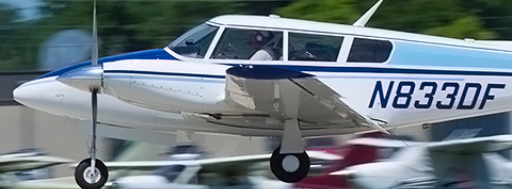I learned about the upgrade opportunity (going from FO to Captain) while on vacation, and subsequently had only a few days to study for the first test – a limitations test that was to be administered as soon as we arrived in Charlotte. I was casual about it, and simply reviewed the major points like flaps and gear. I only scored in the high 70’s on that test, and I needed to be 90 or better. I can’t tell you why I didn’t prepare more appropriately, but there it is. Later that night I memorized all of Chapter 7 and took the test again at lunch the next day. Scored a 98, but I was not off to a good start. I only slept 4 hours the previous night, but I did get through it.
Ground school could have been relatively easy, looking back. They give you a bank of questions, and you read the FOM, POM, Systems Manual, and the almost updated Training manual to find the answers. Some of the device manuals are also helpful, like the autopilot guide. The overall quality of the POH and FOM are fine – the rest of the manuals are good, but certainly not perfect.
The quality of the ground school presentations have vastly improved from my first time through in June of 2014. The ground instructors were mostly solid, but did include at least one disinterested line pilot who didn’t deeply understand all of the material. The class candidates were solid though, and compensated for that. I learned an awful lot of material I was expected to remember from initial, only now I had context, depth, and perspective. While my initial training last year may have been rote learning, this year allowed me to fill in the details pretty well.
If you are going to do this, it would be best to come to the first day being totally prepared to not only answer the questions in all of the provided question banks, but to also understand as much about the systems behind those questions as you can. The later is a tall order to accomplish solely by self-study, so I had to rely on in-class learning regarding the ECU and HMU fuel and power plant related systems. Be aware that not all instructors understand these systems as deeply as they should, and either don’t know the answer to your question or give conflicting and/or inaccurate answers. They are human, and these instances infrequent, so go with your gut and be ready to defend your answers with reference material. If you really need an answer, you could press for an expert – but I don’t recommend that approach at Piedmont.
General Advice I’ll repeat a few times: During this entire experience you are being evaluated more than you are being trained. Much more. Keep that in mind in all of your interactions with instructors and training staff. Treat every conversation like you would in a check-ride, answer the question posed to you and stop talking. Your weak areas will later become the focus, and that could detract from allowing you to use your strengths while you learn.
Historically I’ve approached this type of check-ride challenge by rote learning all of the necessary information, and then expanding my knowledge with experience. This approach has served me well for years, but now things were moving at a more significant pace. The time between learning and application is measured in days now, so rote learning while in school will not be enough to prepare for the sims. You must also know – naturally and without searching – where all the switches are so you can get off the gate fluidly. You will not have time to learn this in training.
Each upgrade candidates experience will be a little different. It will depend on the instructors preference and approach, the weaknesses that are perceived based on the questions you may have asked, and the issues they are having out on the line at the time. This happens all the time, so consider this a reminder to live in the moment, and not take anything I say here verbatim. This is not a guide to how your experience will unfold, but instead will provide context to help you know what to expect.
With all the tests behind me – the first sim session will be in Toronto and will be a QPT test. Quality Procedures Training I think is what it is called. Again – this is an evaluation and not training. By this time you will have self-taught all the call-outs, flows, triggers, and briefings you’ll do with your partner. This is the partner you haven’t met yet, who is a brand new FO candidate.
Here we go….
